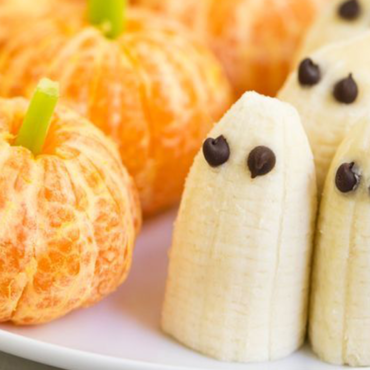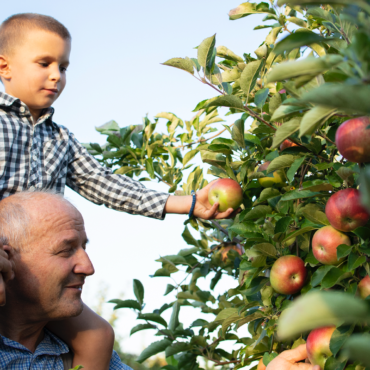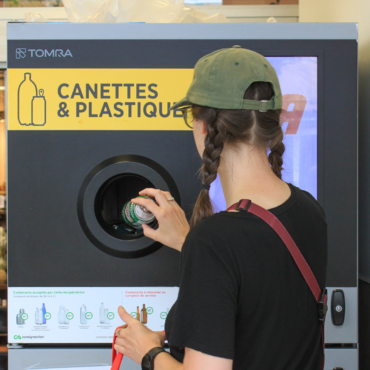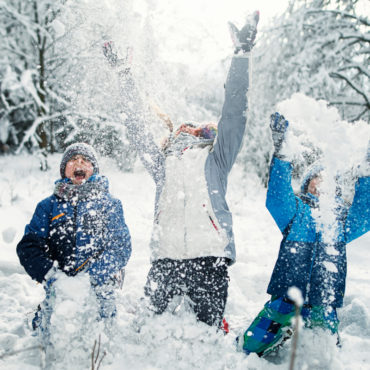Blog & News
Earth Day Workshops
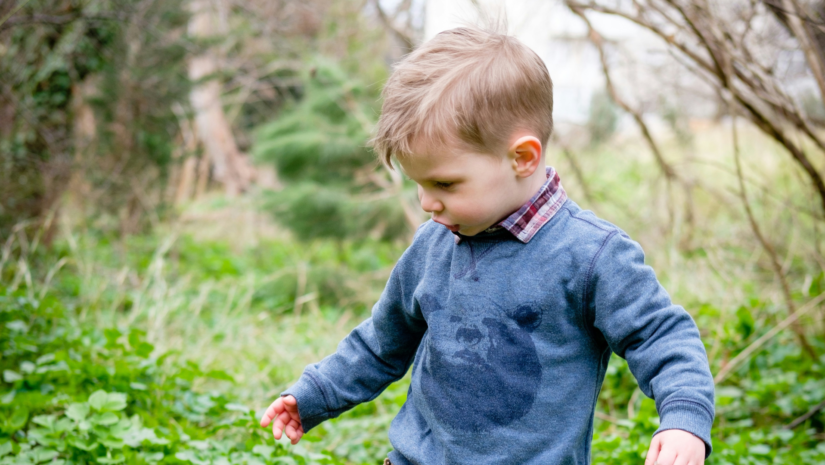
Adopting an eco-responsible lifestyle often begins with small gestures. Whether you’ve already changed your personal habits or you’d like to share your knowledge with the younger generation, this article offers ideas for encouraging children to develop sustainable behaviours from an early age.
Make eco-responsibility fun!
One of the best ways to foster a lifelong love of the environment and encourage eco-responsibility is to make it fun! Here are a few ideas for fun activities to raise environmental awareness from the youngest age!
1. Spend time outdoors
Some of my best childhood memories were spent outdoors: in a park, in a field, in the forest, in the garden, in the schoolyard. These memories were the seed that bloomed a lifelong love of the environment. All it took was spending time outside to develop my passion for nature. Camping, making s’mores by the fire, stargazing, hiking—nothing compares!
Do you have any childhood memories in nature?
A love of nature can be fostered at home, through gardening. Ask your children to choose one of their favourite fruits or vegetables and let them take part in the whole process: digging holes, planting seeds or even watering the plants every day. Then, when harvest time comes, invite your children to cook with you. This way, they’ll get to know the magic of food creation from A to Z (and enjoy it all the more)!

Sharing your own experiences with children is a great way to pass on your passion for the environment to the next generation. By encouraging them to take part in outdoor activities, we’re building a deep attachment to nature that will last a lifetime!
2. Celebrate birthdays the green way
Birthday parties are also a great opportunity to create quick, easy and fun projects to inspire kids to be eco-responsible! Here are a few ideas to help you rethink your consumption habits for a birthday:
Start by reducing the instinct to buy. Ask yourself questions like “Can I make it myself?” This can apply to things like decorations, costumes and especially the cake! These are fun projects that allow children to take matters into their own hands, while developing the habit of avoiding buying new, packaged and disposable items. Best of all, these handmade decorations will be extremely valuable and can be reused for years to come!
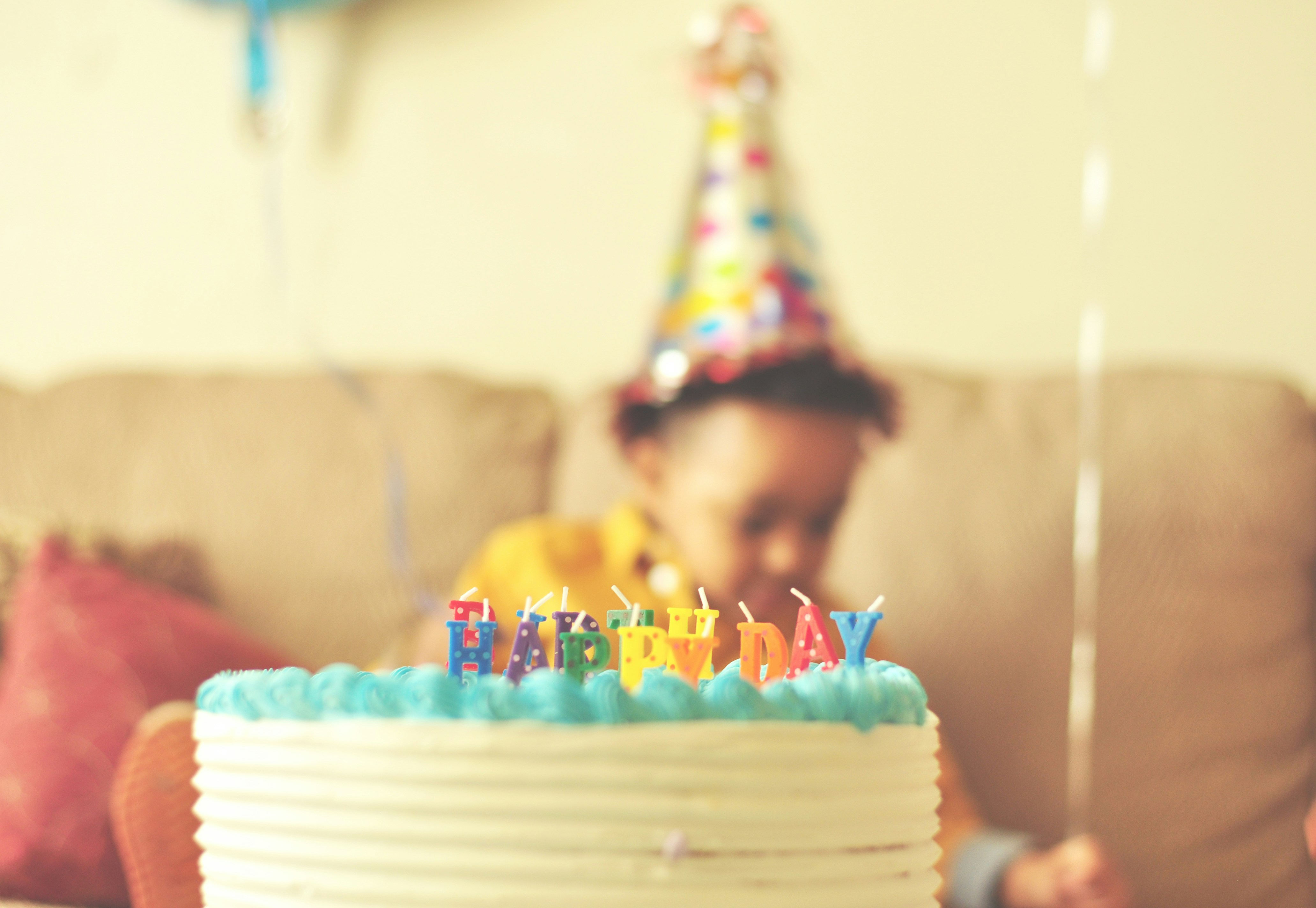
Inspire anti-waste reflexes at home
It’s not easy to find ways to make anti-waste habits last at home, but here are a few suggestions to keep them going:
1. Take the time to explain your anti-waste reflexes
By carefully observing your daily routines at home and pointing out why they’re important, children may be more inclined to participate in your activities and adopt them as their own reflexes.
For example, to instill anti-waste habits from an early age, involve them in the food preparation process from start to finish, from the moment they enter the grocery store to the moment they store their food at home. Ask questions like “We need this ingredient for our recipe—can you check the fridge?” Or, “Why should this food be kept in the fridge and that one in the pantry?”

You can also try involving them in planning weekly recipes. Focus on practices that include using ingredients already in the fridge or pantry, storing leftovers in the freezer and reusing food scraps. A fun example of this would be using lemon peels and strawberry stems to make homemade summer strawberry lemonade!
For more information on some of these anti-food waste practices, check out our other blog posts on giving your food waste a second life, or even on anti-waste camping!
These are small steps towards involving them early on in the process of learning anti-waste reflexes. Learning through observation is essential!
2. Create easy-to-use labels for waste, recycling and compost
As with food waste, take the time to carefully explain your process for organizing waste materials at home, and ask your children to learn by example.
One way to simplify the process is to create individual labels to place on trash cans, recycling bins and compost bins. Visual labels with small pictures, indicating which types of items go in which bin, are a great way for children to learn. Here are some ideas for small images to place on your garbage cans:
•For the garbage bin: plastic film, Styrofoam, plastic utensils.
•For recycling: cereal boxes, egg cartons, plastic bottles.
•For your compost bin: apple cores, banana peels, eggshells.
It can start with something as simple as washing your plastic food containers before recycling them. When they see you doing it, they’ll do it too!
For even more resources and information on how to get kids involved in green action, be sure to check out Earth Rangers, an Earth Day Canada partner dedicated to educating children about biodiversity, protecting wildlife and adopting sustainable behaviours.
In short, the best way to inspire the next generation is to lead by example. By taking the time to share your own eco-friendly habits, we’ll encourage children to naturally adopt the same gestures—all while having fun!
Sources:
Earth Rangers.
https://www.earthrangers.com/EN/CA/
Earth Day Canada ( March 7, 2024). Giving a Second Life to Your Food Waste
https://earthday.ca/2024/03/07/giving-a-second-life-to-your-food-waste/
Earth Day Canada (June 7, 2022). Zero Food Waste, Even When Camping!
https://earthday.ca/2022/06/07/zero-food-waste-even-when-camping/

Workshops, Team Manager
Camille Defoly
Joyful and positive, Camille is convinced that intentional daily actions make a difference! Her passion for theatre has led her to lead and organize several events. She loves to cook and to try new dishes with her leftovers. A friendly person, she is fond of board games. For her, all nature trips are an opportunity to marvel at wildflowers and mushrooms.
View all posts...
Workshops, speaker
Isabel Strachan
Passionate about bridging the connection between academia and the everyday, Isabel’s background in climate research inspires her to transform scientific knowledge into easily accessible material for the general public. Having spent a year in England doing her master’s in historical climatology, her love for the environment has led her to travel in search of better appreciating the beautiful natural landscapes from her studies. A fan of all things Canadian winter, Isabel is an avid figure skater and spends her time doing pilates, going to local concerts and discovering new wines.
View all posts...Related posts :
Contact us
Earth Day Canada
5818, boulevard Saint-Laurent
Montréal (Québec) H2T 1T3 Canada
Phone : (514) 728-0116
Toll free : 1 800 424-8758
Fax : (514) 303-0248
Email: hello@earthday.ca
2026 © Earth Day Canada. All rights reserved.
Privacy policy · Terms of use · Trademark

